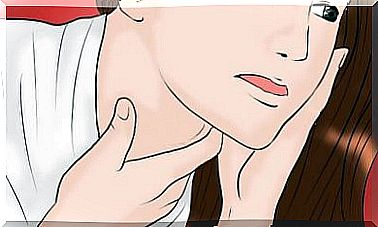Cacosmia: What Does It Consist Of And How Does It Affect The Perception Of Odors?
Placing your nose on an apple and not catching its appetizing scent. Approaching a flower and not perceiving any pleasant nuance of its fragrance. Sit down to eat and not sniff any type of food. Furthermore, in many cases what happens is that what we feel is a strange pestilence. This type of disorder receives a very specific name: cacosmia .
Cacosmia is a common phenomenon that should be differentiated from phantosmia. In the latter case, the person may also experience an unpleasant olfactory sensation, but with the only peculiarity that there is no stimulus.
Thus, with regard to smell disorders, it should be noted that these are common in older adults. As we get older, things that once whetted our appetite or generated well-being, now disturb us.
What is cacosmia?
Imagine what it can be like to live with the constant perceptual feeling that everything smells bad to us. Suddenly, the world is altered, we stop experiencing pleasure when showering with our favorite soap or when using our usual perfume. Likewise, we cannot ignore the fact of what this alteration of smell does to food.
Cacosmia is a smell disorder and a type of parosmia, that is, a change in the normal perception of odors. In general, this fact does not come alone, since said alteration is usually the result of an underlying problem. As we have pointed out, it may be due to aging, but in other cases it also comes from a clinical condition.

Cacosmia in young people can be due to underlying pathologies, unlike older people who suffer from it due to aging.
What symptoms does cacosmia have?
Cacosmia manifests itself in two ways: with the presence of an unpleasant smell or with the absence of any type of olfactory sensation. Both realities can be just as problematic. Every stimulus, object and scene loses its original smell for the person.
Food is no longer identified by its smell and a good part of the stimuli that surround the patient acquire an uncomfortable stench. The smell of burning or rotten are the most common.
On the other hand, an unusual event may occur. Some of the patients who show this perceptual alteration suddenly feel a predilection for this type of foul odor. This is a symptom of a psychiatric disorder.
How does it affect the person?
As we have pointed out, cacosmia is a common smell disorder in the elderly population and in patients suffering from Parkinson’s disease. The loss or alteration of the smell has an obvious impact on your quality of life:
- Many of those who suffer from cacosmia lose their appetite. What’s more, in many cases they experience nausea.
- The lack of a correct and adequate diet leads to states of weakness and malnutrition. Something serious in the elderly population.
- The presence of an unpleasant olfactory sensation affects social interaction. Suddenly, the world takes on an uncomfortable stench that limits the ability to enjoy food and being close to other people.
In certain cases, cacosmia is the symptom of an underlying disease, such as Parkinson’s itself or certain infectious diseases.
What is the cause of cacosmia?
Cacosmia actually has multiple triggers. All have a severe impact on the patient. Let’s analyze the most common:
- Exposure to polluting environments: the University of Pittsburgh School of Medicine carried out a study in which it was shown that those workers exposed to chemical contexts, with pollutants such as solvents or paints, suffer from cacosmia.
- Parkinson’s: Loss of the sense of smell is usually an early sign of the disease.
- Infectious diseases: some viruses usually present with temporary taste and smell alterations.
- Tobacco: an effect that many smokers suffer is the change in smell and taste, especially in food.
- Sinusitis and rhinitis: both chronic sinusitis and rhinitis alter the nasal mucosa and paranasal sinuses.
- Hypothyroidism
- Epilepsy: Chacosmia is temporary and arises as a symptom before an epileptic seizure (aura).
- Schizophrenia.

How are olfactory disorders treated?
Olfactory disorders have a complex therapeutic approach. In certain cases, such as infections, the loss of smell is temporary. However, in other situations there is no other option but to resort to surgery or treatment with antibiotics to reduce its effect.
Likewise, when the patient lives impaired by constantly feeling nauseating odors, they choose to remove the olfactory bulbs. With this, quality of life is gained. It should be noted that science tries to discover new methods and techniques to solve these types of disorders. For example, gene and stem cell therapy are working well.









